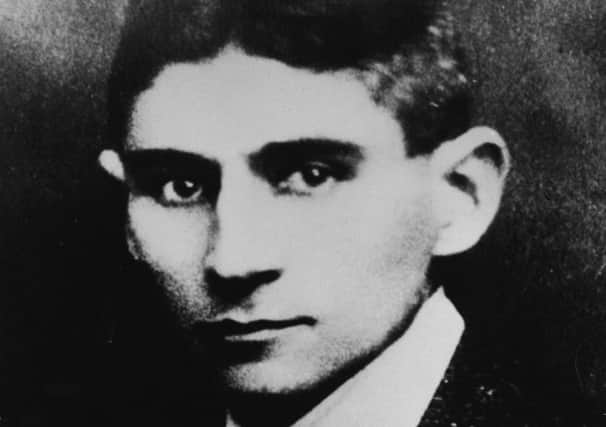Book review: The Glory of Life


The Glory of Life
Michael Kumpfmuller
Haus Publishing, 239pp, £14.99
Franz Kafka died of tuberculosis in July 1924, leaving instructions to his friend and executor Max Brod that all his unpublished writings should be destroyed. Happily, Brod disobeyed the command. In the previous summer, already in wretched health, but holidaying with his sister and her children on the Baltic coast, Kafka met a young woman, Dora Diamant. She was Jewish like himself, and a practising and observant Jew, which he wasn’t. She was working that summer as a cook for a Jewish children’s home.
They fell into conversation. He found her sympathetic, full of a stimulating and comforting vitality, For her part, this 40-year-old man who looked younger than his years and whom she first knew as “the doctor” – not, of course, a doctor of medicine – was like nobody she had encountered before. She was drawn to him because he was gentle, intelligent and funny. One should remember that Kafka regarded himself as a writer of comedies. When he read his work aloud to friends, he often had to break off because he was giggling with delight.
Advertisement
Hide AdFriendship soon turned to love, if of necessity a strained one, disapproved of by both families – though not by his sister and her husband. In the autumn, Kafka moved to Berlin to be with Dora, and Michael Kumpfmuller’s evocation of the Berlin of the early days of the Weimar Republic is vivid. These were the years of hyper-inflation, when any money you had in the morning had lost its value by the afternoon, of rising political tension and anti-Semitism, aggravated by the number of Jewish refugees from the East who had flocked into the city. It’s the turbulent city so vividly recorded by Joseph Roth in his journalism, a place where everything was provisional, nothing sure. Kumpfmuller catches the atmosphere very well and it seems that his picture of this Berlin, where uncertainty concerning the future was endemic, is the right, even the poetic, setting for this love affair which Franz knows, and Dora fears, cannot last long.
Yet it enriches them both. It even gives him hope. He reads to her and she understands things she hasn’t even thought of previously. But the giving is not one-sided. “Sometimes,” we are told, “they even pray together, and she is always surprised to find how little he knows. But that, perhaps, is what makes his recital of the prayers so delightful; he is awkwardly devout, like a schoolboy muttering the first letters of the alphabet to himself, while his thoughts are heaven knows where. He is at odds with himself, has the feeling he is doing everything wrong – but there is no right or wrong, you just have to say the prayers.” This is very good. Kafka was always at odds with himself, which was one of his charms, however infuriating at other times to his father and those who cared for him.
The Glory of Life is a love story, and an unfashionably gentle and tender one. We know there can be no happy ending. Franz and Dora may have created a little paradise for themselves, tasting a return to Eden. But it can’t last.
Berlin is too much for Franz. He is moved to a sanatorium near Vienna. The last weeks are beautifully, painfully, described. “He does not sense that these are his last days. There is a certain fluctuation that is a kind of incredulity, for sometimes he feels with every fibre of his body, that he consists only of weakness, and then, the next moment, he pulls himself together again.”
When at last he slips away, Dora wonders if she should go back to Berlin, even though his family have made her welcome, even his father who has so often despaired of his son, though he now misses him and looks at Dora “as if he wouldn’t have expected Franz to find a girl like Dora”. But she will return to Berlin; it is the place where everything reminds her of Franz.
Last year this novel won the Jean Monnet Prize for European Literature, and it has now been admirably translated by Anthea Bell. The reviewer in the Suddeutsche Zeitung said it would be worth reading even if the protagonist were not Kafka. This is fair comment, but for at least the first half of the book I wondered if it might not have worked just as well, or even better, if Franz wasn’t actually identified as Kafka.
Advertisement
Hide AdEventually I decided otherwise, that Michael Kumpfmuller had been right not to fictionalise it entirely. The novel gains from its closeness to the reality of Kafka’s last months. One should add that you don’t have to have read any of the several biographies, or indeed Kafka’s own work, to enjoy the novel, though it’s likely that it will lead anyone who hasn’t already read, say, The Trial and The Castle to do so now, and indeed, others to return to them. Dora, incidentally, came as a refugee to England and so escaped the Holocaust in which Kafka’s sisters were murdered. She survived Franz by 30 years, dying in 1954.
The letters they wrote each other and his last notebooks which he entrusted to her were confiscated by the Gestapo in 1933 when they searched her apartment and have never been recovered. This makes Kumpfmuller’s imaginative recreation of their love and their year together all the more admirable and welcome.